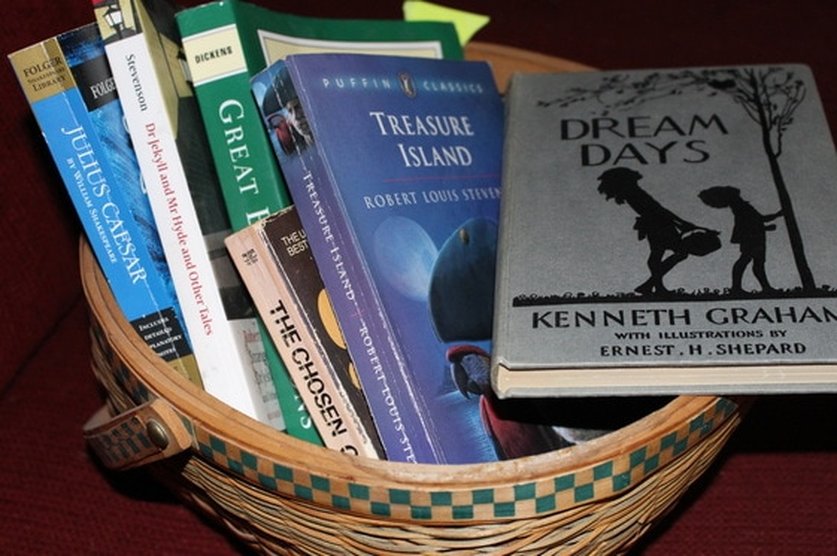Don't need a full-year course?
Try An individual literature unit!
If you don't need a full-year course, but would like to incorporate some literature in your schooling this year, try one of our individual literature units. New units will be rolled out on a continuing basis, but our recommendation is that your student ALWAYS begin with the "Intro to Lit Analysis" 4 week unit. It is the first unit from the Intro to Lit course, and a solid foundation for lit analysis at the high school level and beyond. When the unit is complete, you will find a coupon good for the unit's cost OFF the price of a complete course! What a great way to try the concept before you buy an entire course!
Each literature unit contains a Teacher's guide with suggested timelines for each class day, keys to the quizzes & classwork, and discussion questions. Additionally, you will have access to student work (reading comprehension quizzes, inclass work, homework assignments), video discussions, and more. Most units have a complementary vocabulary unit attached as well!
Each literature unit contains a Teacher's guide with suggested timelines for each class day, keys to the quizzes & classwork, and discussion questions. Additionally, you will have access to student work (reading comprehension quizzes, inclass work, homework assignments), video discussions, and more. Most units have a complementary vocabulary unit attached as well!
|
Intro to Literary Analysis provides purposeful reading through short fiction and children's fiction. Diagramming story elements, common literary devices, and the importance of characterization, setting, and background development are introduced. Using short works, one work will be read and discussed in class, and one will be assigned for homework (and reviewed the following week).
This unit forms the foundation for each succeeding unit in the course. If your student has not had a high school level course in literature, begin here. (Recommended for grades 9-12) |
In Treasure Island, we take a close look at the competing characters within this classic pirate tale. Stevenson's work is the foundational work of a genre. Treasure maps & pirate gold make this an enjoyable, accessible tale. The lectures center on details of the work, discussing its structure and style, and investigating the themes raised by the work in light of its context and authorship.
Introducing the characteristics of a bildungsroman novel and applying the analysis skills previously learned round out this unit. (Recommended for grades 9-10) |
Julius Caesar includes a study of rhetorical modes of persuasion. Ethos, pathos, and logos are on full display in this classic work, and the students will be encouraged to identify and consider them.
In addition to an introduction to Shakespeare, this work serves as our introduction to the uniquely participatory genre of the play. Multi-media experiences are suggested in the course to bring this unit to life for 21st century students. (Recommended for grades 9-12) |
Great Expectations explores the critical importance of the elements of setting and background as well as their use to convey theme and inform character.
Students will examine the methods used by the author as he seamlessly introduces the reader to the deep background story behind this tale, leading us to discover it as the main characters do. Lecture will also introduce the myth of the "neutral text" - sometimes known as worldview. Dickens' works are notoriously wordy, but Great Expectations proves to be accessible to most on-grade readers. (Reccomended for grades 9--12) |
Grammar & Grace
|


